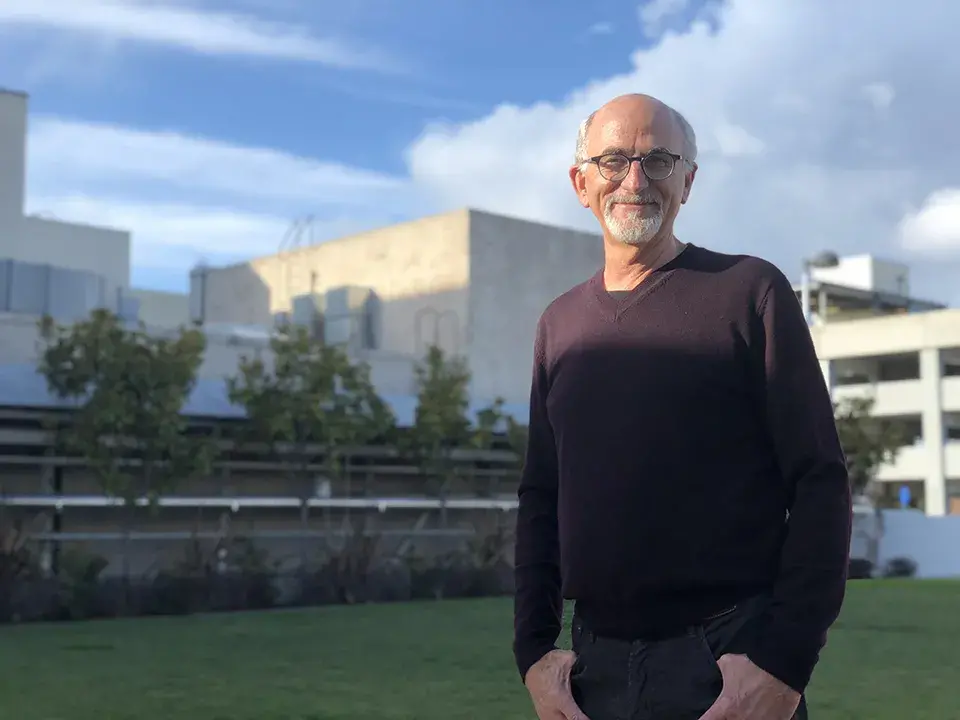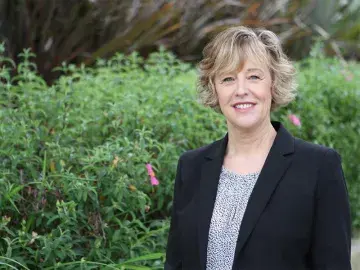Training Transforms Healthcare by Focusing on Social Structures

An emerging educational movement that trains health professionals to consider the social, political, and economic forces faced by patients rather than just treating their illnesses is under consideration as a possible addition to the curriculum at Samuel Merritt University (SMU).
The approach known as “structural competency” encourages medical practitioners to recognize the larger forces that influence patients’ health outcomes, such as poverty and racism, instead of just concentrating on genetics or lifestyle choices in their clinical interactions.
Terry Nordstrom, SMU vice president for Enrollment and Student Services, said preparing healthcare practitioners to understand and act on the social, political and economic forces that influence health and illness has the potential to result in better health outcomes at the individual and community levels.
“The challenge in health professions is that the people who come to see us often have problems that are complicated by these structural issues and if we don't understand those issues, we can't serve them effectively,” said Nordstrom.
Nordstrom was one of dozens of students and faculty from SMU, UCSF and UC Berkeley who attended a recent structural competency training held on the SMU campus. The training, conducted by several Bay Area physicians and doctoral students, is rooted in cultural anthropology and the work of Dr. Paul Farmer, an internationally renowned public health expert, who has written about “social arrangements that put individuals and populations in harm’s way.”
As an example, blaming obesity on individual behavior places the full responsibility on the individual and can shame or victimize that person. Even acknowledging the roles of living in “food deserts” that characterize low income neighborhoods only goes so far. Structural competency asks healthcare providers to better understand how national food policy, international free trade agreements, migration patterns, and the social structures and resources provided by local, state, and federal governments contribute to the problem.
It also asks healthcare practitioners to take that understanding to develop actions with their individual patients, but also at the local and national levels through advocacy and participating in developing community responses to these problems.
“Even with good intentions, we can do harm,” said Jenifer Matthews of Children’s Hospital in Oakland. “Our way of talking about obesity and weight harms families by creating a feeling of poor parenting by saying ‘feed you children more fruits and vegetables.’”
Also raised was the recent news of dangerously high levels of lead in Flint, Michigan tap water and a pediatrician’s efforts to force the state to take the water crisis seriously. Despite government claims that the water was safe to drink, the pediatrician analyzed hospital records and found that the number of Flint children with elevated blood-lead levels had doubled, and in some areas tripled, since the city switched to a new water supply.
During the training, participants split into small groups to consider the case of a 37-year-old Mexican man brought to an emergency room smelling of alcohol who had been found unconscious on a park bench. Notes from the medical provider referred to the patient as a “frequent flyer” with a history of hospital visits for alcohol-related trauma and noted that he was “muttering incoherently in Spanish.”
Participants were asked to name social, political and economic factors that could be contributing to his problems. Many pointed to his apparent homelessness and possible illegal immigration status. What they later learned from the trainers was that the patient was a fourth-generation corn farmer from Oaxaca who could no longer make a living after the North American Free Trade Agreement flooded the Mexican market with cheap U.S. corn. He moved to San Francisco to work as a day laborer, got injured and couldn’t pay his rent so he became homeless and began to drink heavily.
The trainers said homelessness, U.S. immigration policies that restrict access to healthcare, the stigma associated with drug addiction, lack of health insurance and other social inequalities all lead to a higher risk for disease.
Shirley Strong, director of the SMU Office of Diversity and Inclusion who helped organize the event, said she hopes the ideas will be infused in medical training as well as all health sciences education. Strong is recommending that SMU call it “the structural determinants of health.”
“I was looking for a training that understood the complex dynamics at play when we perform patient care rather than just focusing on individual pathology and blaming the victim,” said Strong. “This training does it beautifully.”
Strong learned of the movement after reading Fresh Fruit, Broken Bodies: Migrant Workers in the United States. The book, chosen for the 2015-16 SMU Community Reads program, demonstrates how market forces, anti-immigrant sentiment, and racism undermine health and healthcare.
SMU’s Marjorie Hammer, assistant professor of nursing and co-chair of the Community Reads initiative, contacted author Seth Holmes, a physician and UC Berkeley professor, who introduced Strong and Hammer to a group of doctors and students he was working with on promoting structural competency as a way to reduce health disparities. That collaboration led to the recent training on the SMU campus.
The training was videotaped and will be made available to the SMU community as discussions begin among academic leaders and faculty on how to incorporate it into the University’s curriculum.
For Nordstrom, the solution rests in part by providing it as component of interprofessional education — an initiative he has been spearheading at SMU. He said the issues raised by the training also dovetail with the University’s mission.
“If we’re going to transform healthcare, the only way to do that is to change the organizational and societal systems that perpetuate ill health and diseases,” said Nordstrom.


